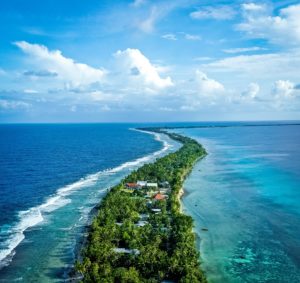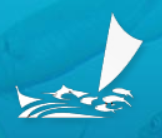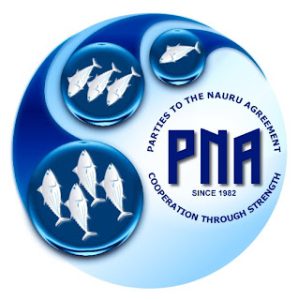 Tuvalu is situated in the South Pacific Ocean between latitudes 5 and 9 degrees South and longitudes 176 and 179 degrees East, encompassing an Exclusive Economic Zone (EEZ) of 900,000 km2 and a land area of 26 km2. The islands of Tuvalu, all low lying atolls, are home to around 11,000 persons with over half the population living in the capital, Funafuti.
Tuvalu is situated in the South Pacific Ocean between latitudes 5 and 9 degrees South and longitudes 176 and 179 degrees East, encompassing an Exclusive Economic Zone (EEZ) of 900,000 km2 and a land area of 26 km2. The islands of Tuvalu, all low lying atolls, are home to around 11,000 persons with over half the population living in the capital, Funafuti.
Tuvalu has been described as one of the most fishery-dependent countries in the World. With a limited land area and poor soils, fish has always been an essential part of the diet
Today, with a range of imported foods available, per capita consumption of seafood has been falling but is still one of the highest in the world. Fisheries resources are essential for food security and fish is a healthier option than most of the imported substitutes.
The guiding vision of the Tuvalu Fisheries Department is to promote:
- Sustainable small-scale fisheries operations pertinent to income generation, food security and healthier diets are maintained and strengthened nationwide.
- Revenue generated from our ocean fisheries is optimized.
The physical and economic health of the Tuvalu population depends upon the health of its inshore and oceanic fisheries. While inshore fisheries can be managed wholly within the country, oceanic fisheries are part of a larger ecosystem and need to be managed through regional and sub-regional co-operation.
Our Mission is to increase the contribution of Fisheries to socio-economic development and quality of life.
These high-level objectives build on earlier Corporate Plans, but reflect a change of emphasis towards building food security and greater economic resilience based on our fisheries resources.
The primary objectives of the Department, as expressed in the 4th Corporate Plan (2023-2025) are:
- Develop a sustainable commercial fishery optimizing revenues from our own waters;
- Foster sustainable management of oceanic fisheries resources;
- Improve management of coastal fisheries for sustainable inshore resources;
- Execute a consistent data collection and analysis facility to ensure best decisions are made throughout;
- Increase the value of access fishing licenses in Tuvau waters;
- Develop systems, staff capacity and facilities for a Tuvalu Fisheries Authority; and
- Promote public awareness and education on fisheries issues.
These objectives are consistent with but updated from the objectives stated in Te Kakeega III, the Government’s National Strategy for Sustainable Development 2015-2020. However there have been significant, rapid changes in the fisheries sector since the formulation of TKIII, and the objectives it contains will need to be updated in the new strategy.
The Department also has long term objectives already in place and which consist of:
- Conversion of the Fisheries Department to non-commercial statutory authority, so that it can function more effectively as a revenue-generation agency without the inefficiencies and constraints imposed by public service rules and regulations;
- Establishment of a fishery product food safety competent authority, so that fishery products caught in Tuvalu waters, or by Tuvalu vessels fishing elsewhere, can be sold into higher-value markets that are currently not available to us;
- The growth of a local fleet of medium sized vessels, owned and operated by Tuvaluans, fishing outside the reef for tunas and deep-water snappers, whose product is being fed into the local market and potentially for export;
- Lagoon fishery management and stewardship plans that have reversed the decline in reef fishery production in Funafuti and at least a couple of outer islands where we know that overfishing is becoming a problem.
The fisheries sector is dynamic and fast-evolving: while the new TFD Corporate Plan aims to address all current issues, even within a year there may be changes in priorities. This emphasizes the need for the Department to remain responsive and flexible irrespective of the planning framework adopted.
Our Partners:


